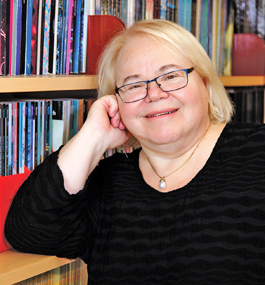Neuroscientist Marder Accepts Kavli Award in Norway

Eve Marder '69
by Lawrence Goodman
At a September 2016 ceremony emceed by Alan Alda at the Oslo Concert Hall, Norwegian Crown Prince Haakon bestowed the Kavli Prize on Eve Marder ’69, the Victor and Gwendolyn Beinfield Professor of Neuroscience, for her work on neural plasticity.
She shared the prestigious award in neuroscience with Michael Merzenich, of the University of California, San Francisco, and Carla Shatz, of Stanford. The three were awarded the $1 million prize “for the discovery of mechanisms that allow experience and neural activity to remodel brain function,” according to the Kavli Foundation.
Marder’s research on small neural circuits found in lobsters and crabs has revolutionized scientists’ understanding of the fundamental nature of neuronal circuit operation, including how neuromodulators control behavioral outputs and how the stability of circuits is maintained over time.
The Kavli Foundation said Marder, Merzenich and Shatz have “revealed that brain circuits are ‘sculpted’ from long before birth through adulthood. They have also helped explain how the brain achieves such a fine balance — between the adaptability that allows us to learn and to heal, and the stability that maintains our abilities and memories for a lifetime.”
When the recipients of the award were announced last summer, Marder said, “It’s magical how brains can incorporate changes without destroying function. Just think about it. Every time you have a long-lived cell, you’re constantly replacing the components. This turnover allows for plasticity, but it also has to be kept in check. That is at the cellular scale. At a larger scale, you don’t want to train a brain to do something better at the risk of losing its ability to do something else that’s really important.”
The Kavli Prize is a partnership between the Norwegian Academy of Science and Letters, the U.S.-based Kavli Foundation, and the Norwegian Ministry of Education and Research. Prizes are awarded biennially in the fields of astrophysics, nanoscience and neuroscience.
